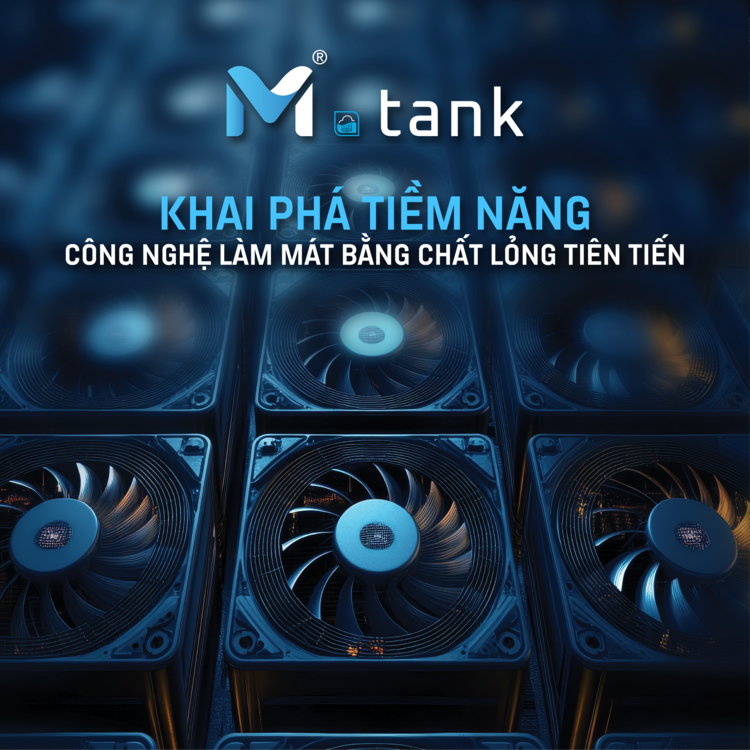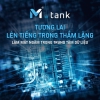


Từ giai đoạn thí nghiệm đến nhu cầu cấp thiết
Làm mát chất lỏng có một lịch sử đáng kể. Vào những năm 1960 và 1970, các nghiên cứu đầu tiên đã thử nghiệm việc nhúng linh kiện điện tử vào chất lỏng điện môi để giải nhiệt trong các hệ thống hiệu năng cao. Những nỗ lực này đã đặt nền móng cho các đổi mới sau này. Khi làm mát ngâm theo dạng module xuất hiện, kỹ sư đã nhận ra giới hạn của làm mát bằng không khí. Gần đây, các hệ thống ngâm một pha đã được áp dụng trong các môi trường điện toán mật độ cao và nhiệt độ cực đại.
Chinh phục nhiệt lượng khổng lồ
Điểm mạnh nổi bật của công nghệ làm mát tiên tiến là khả năng xử lý lượng nhiệt cực lớn. Trong nhiều hệ thống lớn, nhiệt lượng có thể lên đến hàng chục kilowatt mỗi rack. Làm mát bằng không khí thường khó lòng đáp ứng ở quy mô này. Ngược lại, làm mát chất lỏng hấp thu và truyền nhiệt trực tiếp từ linh kiện với tốc độ vượt xa khả năng của hệ thống khí. Điều này giúp cải thiện hiệu suất đáng kể và giảm thiểu điểm nóng có thể làm gián đoạn hoạt động.
Hiệu suất năng lượng và tỷ lệ hiệu quả
Làm mát chất lỏng tinh vi mang lại mức hiệu quả năng lượng vượt ngoài sự tưởng tượng. Chỉ số PUE (Power Usage Effectiveness) giảm mạnh khi không còn cần đến thiết bị làm lạnh, quạt lớn và hệ thống ống gió, đồng nghĩa với việc hệ thống tiêu thụ ít điện năng hơn cho làm mát. Các trung tâm dữ liệu áp dụng công nghệ này thường ghi nhận mức tiết kiệm điện từ 40–50% so với các hệ thống làm mát truyền thống. Kết quả đạt được không chỉ là chi phí vận hành thấp hơn mà còn cắt giảm lượng phát thải carbon.
Tính linh hoạt trong triển khai
Hệ thống làm mát chất lỏng có nhiều dạng. Loại mở (open loop) hỗ trợ tùy biến tối đa theo phần cứng và môi trường lắp đặt. Loại đóng (closed loop) mang lại ưu điểm về bảo trì và tiện lợi hơn. Trong khi đó, hệ thống ngâm hoàn chỉnh giúp đạt mật độ và hiệu suất tối đa. Sự linh hoạt này cho phép kiến trúc sư trung tâm dữ liệu tùy chỉnh hệ thống một cách chính xác theo nhu cầu về hiệu suất và không gian.
Hoạt động yên tĩnh và độ bền linh kiện
Tiếng ồn là vấn đề thường gặp tại các trung tâm dữ liệu truyền thống. Bằng cách loại bỏ quạt mạnh và hệ thống xử lý không khí, các cơ sở làm mát bằng chất lỏng hoạt động gần như không có tiếng động. Bên cạnh đó, môi trường nhiệt ổn định giúp giảm áp lực lên linh kiện điện tử. Kết quả là ít chu trình nhiệt gây hư hỏng phần cứng, dẫn đến tuổi thọ linh kiện dài hơn và tần suất thay thế giảm.
Khả năng mở rộng mà không cần mở rộng diện tích
Khi nhu cầu về điện toán tăng, mật độ máy chủ cũng cần cao hơn. Công nghệ làm mát chất lỏng tiên tiến hỗ trợ mở rộng mà không cần tăng diện tích vật lý. Trong các thiết kế theo dạng rack hoặc container, quản lý nhiệt được bố trí dạng module và gọn gàng. Hệ thống phân phối chất làm mát với cả nước ấm hoặc lạnh giúp tăng khả năng thích nghi. Điều này giúp các trung tâm dữ liệu mở rộng về năng lực mà không cần thêm không gian.
Tác động môi trường và sẵn sàng tuân thủ
Các quy định ngành và cam kết về môi trường đang ngày càng nghiêm ngặt. Công nghệ làm mát tiên tiến đáp ứng được cả hai yêu cầu này. Việc giảm sử dụng điện và nước giúp các tổ chức chứng minh trách nhiệm môi trường và chuẩn bị cho các tiêu chuẩn tiết kiệm năng lượng cũng như hạn mức phát thải carbon ngày càng khắt khe.
Rào cản kỹ thuật và sẵn sàng vận hành
Bất chấp ưu điểm, việc áp dụng làm mát chất lỏng tiên tiến vẫn gặp nhiều thách thức. Chi phí phát triển cao ban đầu và sự thiếu hụt tiêu chuẩn phần cứng là vấn đề lớn. Các hệ thống cũ thường phải được thiết kế lại hoặc thay mới để hỗ trợ môi trường chất lỏng. Đội ngũ vận hành cần được đào tạo về công tác xử lý chất lỏng, phòng tránh rò rỉ và quy trình bảo trì. Những tổ chức đi đầu có thể đối diện với nhiều khó khăn phát triển nhưng bù lại sẽ giành được lợi thế cạnh tranh trong dài hạn.
CÔNG TY CỔ PHẦN CÔNG NGHỆ CSD GROUP
Đồng hành cùng doanh nghiệp triển khai các giải pháp Cloud tại chỗ tích hợp làm mát xanh.
Đội ngũ chuyên gia của chúng tôi luôn sẵn sàng tư vấn và hỗ trợ thiết kế giải
pháp phù hợp với nhu cầu riêng biệt, hướng đến hạ tầng số mạnh mẽ, tiết kiệm năng lượng và
thân thiện môi trường của từng doanh
nghiệp.
Địa Chỉ: 922/28 Cách Mạng Tháng Tám, Phường Tân Sơn Nhất, TP.HCM
Hotline: 0931.797.533 (Zalo)
Email: sales@csdgroup.com.vn


